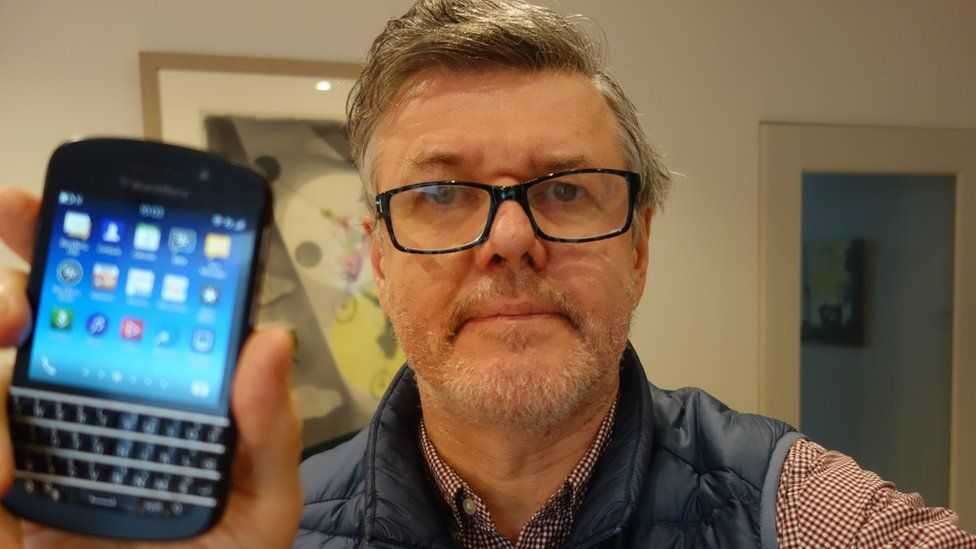Why BlackBerry held the tiny keys to my heart

Many vintage BlackBerry phones will stop working on Tuesday as the company turns off support for its operating system. For journalist Bill Wilson, it means the retirement of a faithful workhorse.
"Is that a Blackberry, I didn't know they were still going?" has been many a conversation opener over the past decade, and particularly over the past five or six years.
From airport security to pubs and restaurants, even in hospital intensive care, strangers have looked on curiously and even asked to hold and look at my Q10 phone with its distinctive qwerty keyboard.
But my stock answer of "yes they are still going" would now have to add "but not their classic phones".
Launched in 2013, that particular model, and BlackBerry's phones since then, have faced an increasingly impossible battle as Apple and Samsung set about their battle for global smartphone domination.
Hard to believe that in the late 2000s and early 2010s, BlackBerrys were a ubiquitous sight on commuter trains, trams and planes across the UK - as business professionals scrolled through their emails and tap-tapped away their replies.
But now, after reports of the demise of BlackBerry's operating system on many previous occasions, it really is the final curtain.
For on 4 January, the Canadian firm - which is now a specialist in cyber-security software - is to turn off its BlackBerry OS support.
Termination
Announcing the termination, BlackBerry thanked "our many loyal customers and partners over the years".
It means remaining die-hard owners of their devices won't be able to make or receive calls, send texts, use wi-fi or access mobile data.
That includes all smartphones running on BlackBerry 7.1 OS and earlier, the BlackBerry 10 operating system and the tablet-based BlackBerry PlayBook OS.
Phones such as my antique Q10 will completely cease to function, though it may remain handy as a back-up for contact numbers.
The only glimmer of sustained life is that post-2016 Blackberry-branded phones, which were made under licence by Chinese firm TCL, will still work as they use the Android operating system.
Slow decline
Over the years it's not just Blackberry phone user numbers that have dwindled, but support and functions have dropped away one by one.
Support for many apps, including BBC iPlayer and WhatsApp, was withdrawn from BlackBerry OS devices, and not long ago YouTube stopped working too.
Somehow or other I was able to circuitously get the latter two to work again by downloading links from far corners of the planet. Apps have become a non-existent element for users of BlackBerry devices.
For example, at the start of the coronavirus pandemic in 2020 I found myself unable to download the various NHS apps, and had to sign in to places manually.
In short, it is still great for emails, with five or six different addresses all in one stream. I also love the qwerty keyboard with keys that depress and are not like pressing a hard plank of wood.
As phones have become progressively bigger, the BlackBerry still fits beautifully, and fairly lightly, in the hand.
Previous Story
- The sacred historic Trans Bhutan hiking trail is...
- NASA's Webb telescope launches to see first galaxies,...
- Canada taps maple syrup reserves to meet soaring...
- In a first, Starbucks workers agree to union...
- North American demand for cruises on the rise...
- Amazon: Union election to be rerun after claims...
- PLASTIC THAT COULD BE HARMFUL
- Online car buying platform Clutch wants to service...